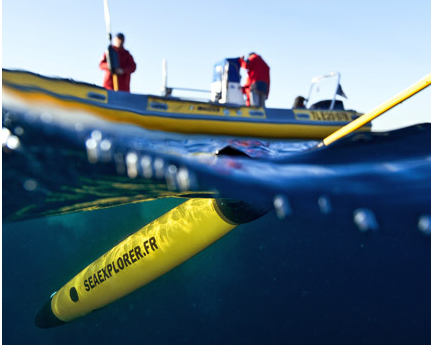Related News

The University of the South Pacific (USP) senior academic, Dr Awnesh Singh will co-lead an oceanographic 20-day research expedition in the southern Fiji waters from March 19 to April 7, 2022, with five other scientists from France and the United States of America (USA).
Dubbed SOKOWASA (Southern-Fiji-Kadavu Oceanographic Water Survey on Alis – which translates to ‘going out to sea’ in native Fijian) the research expedition aims to study the health of marine ecosystems in areas of ecological interest in the southern Fiji Islands. In particular, it will study the relationship between dissolved fluorescent carbon and the first links of the pelagic food chain (planktonic organisms).
The USP Pacific Centre for Environment and Sustainable Development (PaCE-SD) senior lecturer will work alongside Dr Cécile Dupouy from the Mediterranean Institute of Oceanography (MIO) and the Institut de Recherche pour le Développement (IRD) and an adjunct with PaCE-SD in piloting the glider Sea Explorer – an underwater drone, along a 100km transect between the passes of Laucala Bay and Kadavu Island. They will also collect water samples on a grid of 20 stations surrounding this transect, corresponding to the extension of the colored plume observed in parallel by satellite.
In addition to probes measuring classical physical parameters, the glider is equipped with innovative mini-fluorometers capturing different compounds, indicators of terrestrial or marine dissolved inputs.
The SOKOWASA campaign will be able to characterize the pelagic ecosystem in southern Fiji waters, which presents a great variability, detected by satellite and will determine the fishery richness and the coral resources of a key area of the research site.
SOKOWASA will thus bring a better understanding of the functioning of the marine environment in southern Fiji waters.
It will also raise public awareness of global changes in the Pacific and the vulnerability of the coastal ocean environment to these global changes, a research theme of PaCE-SD and USP. In addition to sample collections and underwater research, a logbook will be put online and fed by the SOKOWASA crew for USP students to follow the glider’s movements in the water column throughout the campaign, as well as the progress of the sampling.
Dr Singh is the coordinator of these postgraduate courses at PaCE-SD; Advanced Physical Oceanography (PC430), Tropical Meteorology (PC428), Research Project in Climate Change (PC420) and Climate Science (PC415). Dr Singh also supervises several Master’s and PhD students at USP and international universities.
The SOKOWASA campaign is organized by the French Oceanographic Fleet, the IRD and the CNRS-INSU, in association with USP through PaCE-SD. The research expedition brings together several partners: the Mediterranean Institute of Oceanography, the Institution of Oceanography associated with the Japan Aerospace Exploration Agency (JAXA), the Helmholtz-Zentrum Hereon, as well as the company ALSEAMAR, designer of the underwater drone Sea Explorer, that will be used during the expedition.
The SOKOWASA campaign and the underwater drone operation in Fiji is funded by IRD, IFREMER-GENAVIR, the national program LEFE (Les Enveloppes Fluides et l’Environnement) of INSU-CNRS and by the French Pacific Fund with support from Scripps, JAXA and Hereon. This project is part of a Memorandum of Understanding reactivated in 2022 between IRD and USP and illustrates the richness of partnerships and scientific excellence in the face of major development issues in the Pacific Island countries.